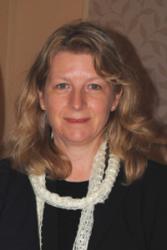New WHO recommendations: Optimizing health worker roles through task shifting
The World Health Organization’s recommendations on optimizing the roles of health workers aim to help address critical health workforce shortages that slow down progress towards the health-related Millennium Development Goals (MDGs). A more rational distribution of tasks and responsibilities among cadres of health workers can significantly improve both access and cost-effectiveness – for example by training and enabling ‘mid-level’ and ‘lay’ health workers to perform specific interventions otherwise provided only by cadres with longer (and sometimes more specialized) training.
The recommendations were developed through a structured process, including a thorough review of available evidence. Complex systematic reviews of evidence were carried out by an international team of experts, including Professor Jane Noyes an expert in evidence synthesis from the University's School of Healthcare Sciences.
 Professor Jane NoyesProfessor Jane Noyes said that: “It was an honour to be part of this very high profile global team. We developed novel ways of organizing and making sense of complex evidence and presented the findings in a way that could be translated into recommendations to improve the health and wellbeing of pregnant women and children throughout the world.”
Professor Jane NoyesProfessor Jane Noyes said that: “It was an honour to be part of this very high profile global team. We developed novel ways of organizing and making sense of complex evidence and presented the findings in a way that could be translated into recommendations to improve the health and wellbeing of pregnant women and children throughout the world.”
These recommendations are intended for health policy-makers, managers and other stakeholders at a regional, national and international level. WHO hopes that countries will adapt and implement them to meet local needs. The recommendations were developed through a formal, structured process including a thorough review of available evidence. The process and the recommendations are described in the related documents.
The recommendations can be viewed at http://www.optimizemnh.org
A film outlining the recommendation can be viewed at: http://www.youtube.com/watch?v=8UD_h1djjow
Publication date: 18 December 2012
